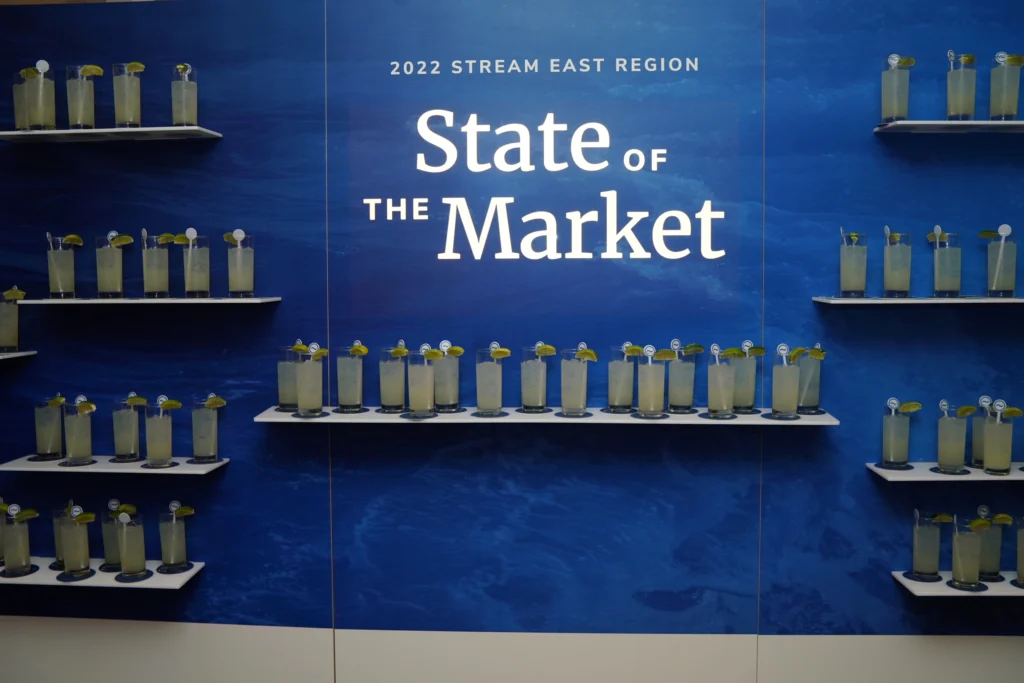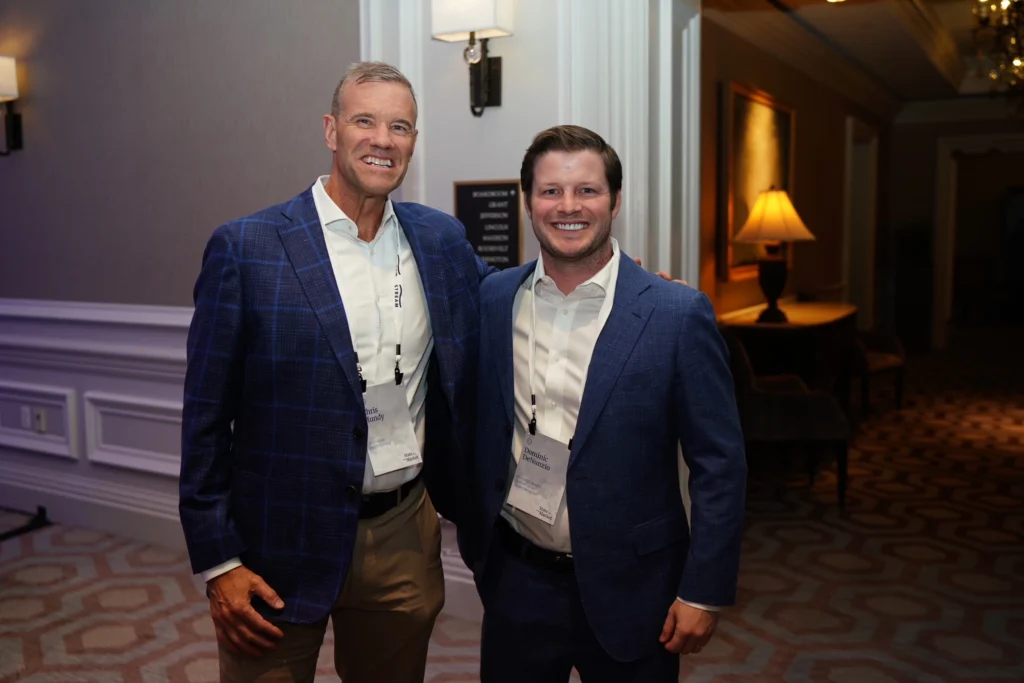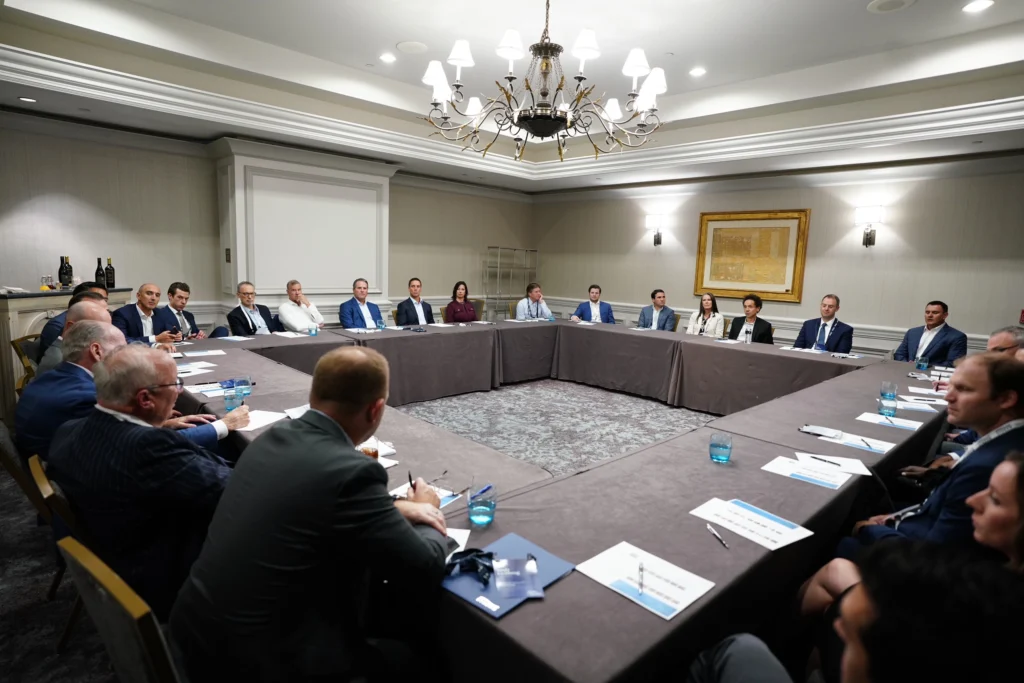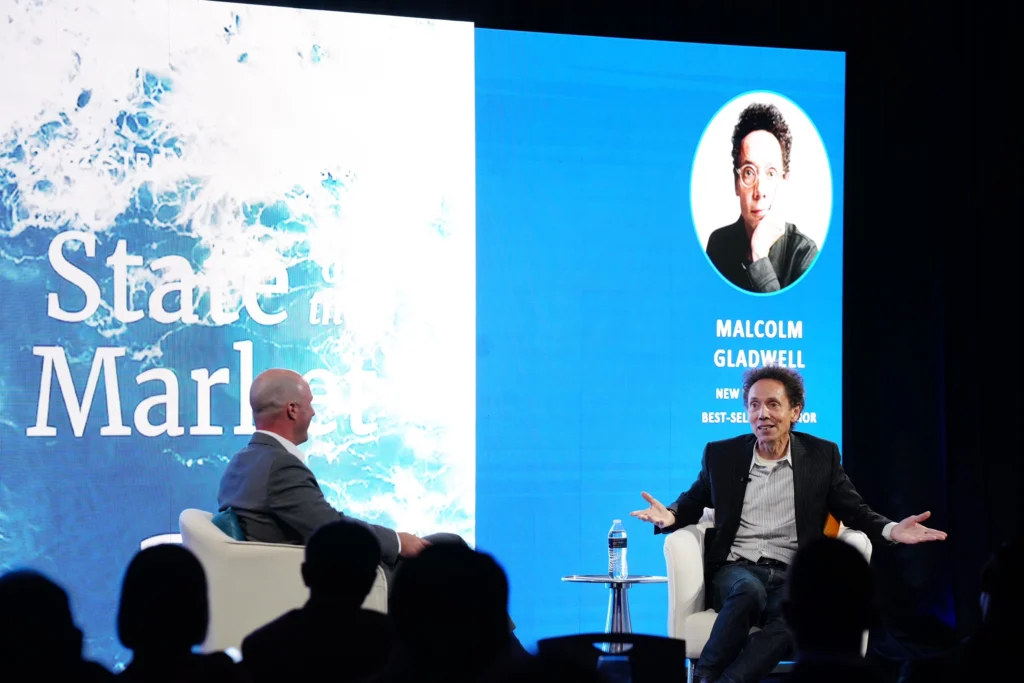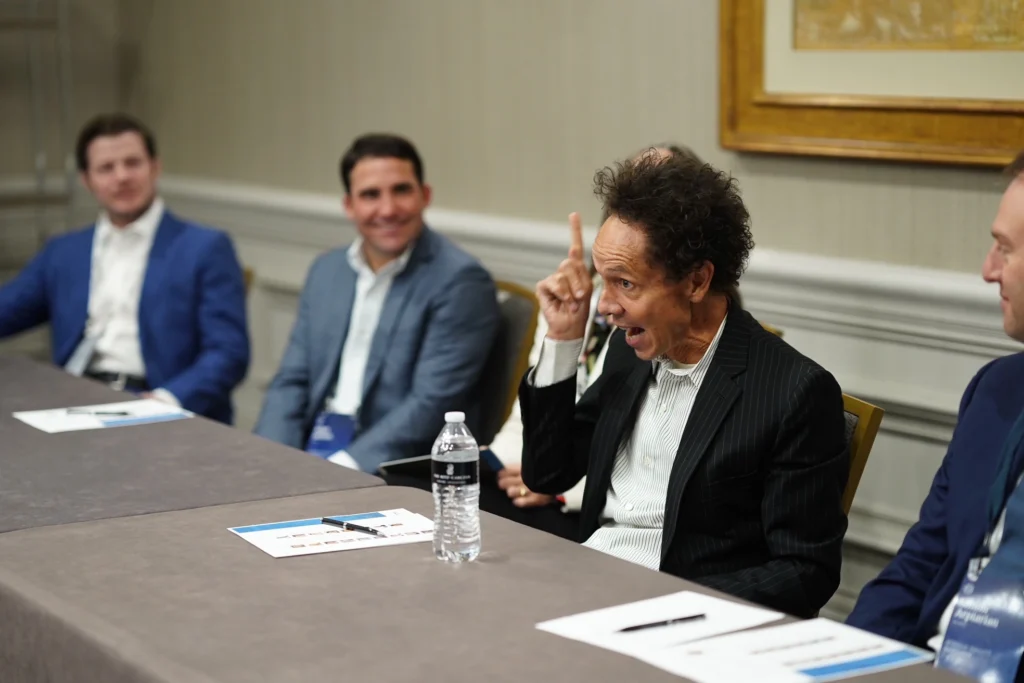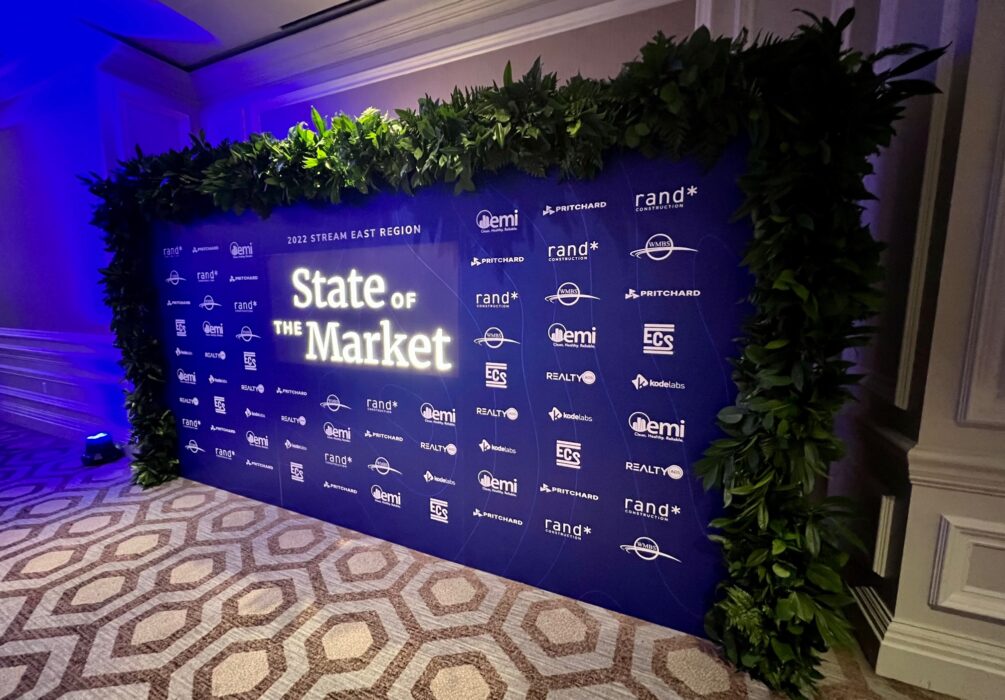
Stream Realty Partners held its East Region State of the Market on Thursday, September 8, to provide clients and guests with valuable industry insights for the office and industrial sectors.
The exclusive event, A Journey Through the Overlooked & Misunderstood, was held at The Ritz-Carlton Washington, D.C. It brought together more than 300 of the firm’s professionals and clients—from investors and commercial real estate executives to occupiers of industrial and office properties Stream represents—for networking, panel discussions, and a special keynote address by New York Times best-selling author Malcolm Gladwell.
The first hour offered opportunities for guests to mingle and network in an intimate setting. The event was sponsored by Rand Construction Company, Washington Metro Building Services (WMBS), Executive Maintenance Inc. (EMI), Pritchard Industries, ECS Limited, RealtyAds, and KodeLabs.
Washington, D.C., Managing Director Andy Eichberg officially opened the event and welcomed clients, partners, sponsors, and guests. The firm then showcased its high-caliber talent with two panel discussions.
Panel 1
The first panel of our East Region State of the Market event explored industrial and office demand trends and best practices in community experiences and building brand loyalty. It was moderated by Northern Virginia Managing Director Anthony Chang and featured panelists Atlanta Managing Director of Property Management Kim Morgan, Atlanta Managing Director Brad Bays, Atlanta Managing Director Preston Menning, Northern Virginia Co-Managing Director Erik McLaughlin, and Senior Vice President Bob Boykin.
Here are some of our panelists’ insights:
- What tenants want today is to reduce risk. Many are looking for more time to make decisions about what they want in an office. Spec suites, spaces that are ready to go, outperform all other product types, giving tenants the flexibility they need to make decisions.
- Industrial clients are foregoing form and function for location and availability. Demand continues to be robust. Atlanta and Nashville have seen an average of 25% rent appreciation in the last three months.
- As consumers continue to put more strain on ecommerce and retail distribution facilities, retailers are experiencing bottlenecks within their industrial space. Clients are now looking to take on more industrial space to keep up with consumer demand and future changes.
- Amenity-rich, new product is winning. Traditional office markets, like the CBD, are struggling to attract tenants as companies return to work. To keep up, they need to create dynamic, engaged, curated office environments for tenants to lure employees back to the office.
- Industrial tenants want more supply, while the office side has too much.
- Bringing in more interactive activities, building community, and creating experiences will bring new life into older buildings.
- There’s a shortage of smaller, more modest industrial space, and there’s a huge gap for tenants looking to lease 20,000 square feet to 100,000 square feet. However, new developments under construction range from 200,000 square feet to 500,000 square feet.
- Higher demand for industrial space will continue to drive rental rates upward.
Panel 2
The second panel was moderated by Atlanta Senior Associate Malik Leaphart and featured panelists Nashville Managing Director and Partner Rob Lowe, Carolinas Executive Managing Director Jared Londry, Washington, D.C. Managing Director Matt Pacinelli, Atlanta Managing Director Peter McGuone, and Carolinas Vice President of Construction Management Lexee Zutz.
Here are some of our panelists’ insights:
- Certain submarkets in key markets have not been in the core investment scope for many investors. As demand continues to increase, those locations will be in the conversation and highly competitive in the next three to five years.
- Construction prices aren’t going down, but they are stabilizing. You can plan for it.
- There’s a big spread in the price per square foot between new product and repositioned assets.
- There’s a big spread in the sale price per square foot between new product and repositioned assets.
- There is opportunity for investors with what’s happening in the shift with debt markets. Some firms are having a difficult time refinancing assets. If properties start to go back to lenders or are being sold from distressed owners, there is opportunity for value-add buyers to come in.
Keynote Speaker
Washington, D.C. Executive Managing Director and Partner Kyle Luby then introduced Gladwell, author of the best-sellers The Tipping Point, Blink, Outliers, What the Dog Saw, and David and Goliath. The co-founder of Pushkin Industries, an audio content company that produces the podcasts Revisionist History, which reconsiders things both overlooked and misunderstood, then took the stage, keeping guests entertained with his optimism and insights.
Here are some of the key takeaways:
- On thriving cities: We are underestimating the cultural cache and capital in why certain cities are thriving–like Austin and Nashville.
- On working from home versus being in office: Even if the quality of the work is the same, the crucial variable is the fun part. Is it worth trying hard if employees are not enjoying themselves?
- On climate change: The price of operating in western/southwestern markets will be affected by climate change issues, which has not yet been factored into what it will cost to operate business in one of those cities int he next 25 to 30 years.
Luby closed the event, inviting visitors to do more networking. Stream’s East Region includes offices in Washington, D.C., Northern Virginia, Nashville, Atlanta, and the Carolinas.

